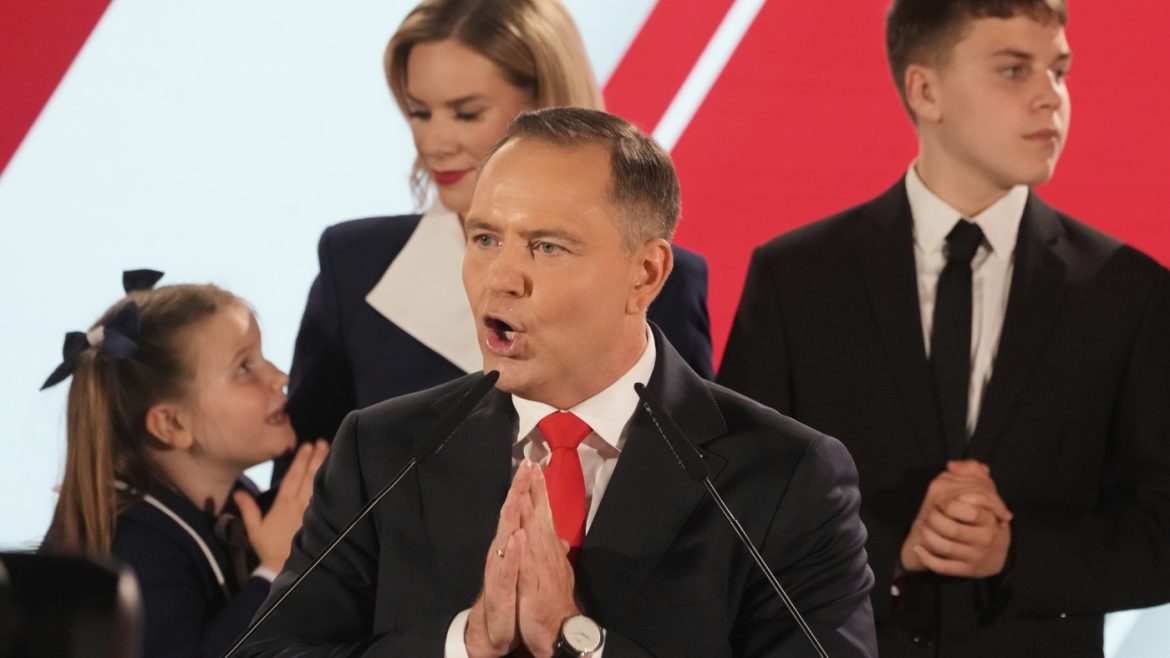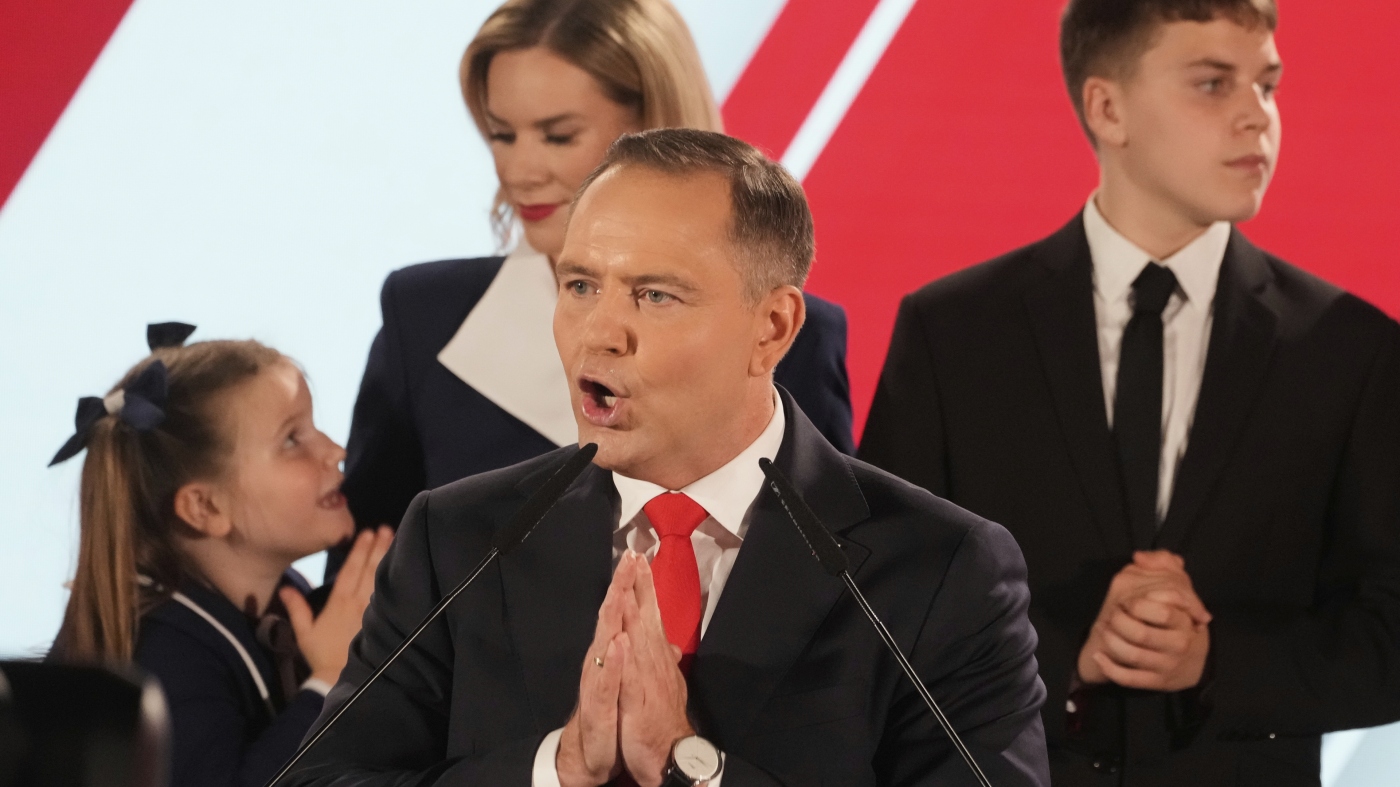Poland’s 2025 Presidential Election: A Deep Dive into Karol Nawrocki’s Narrow Victory and Its Implications
—
Setting the Stage: A Nation at a Crossroads
The recent Polish presidential election culminated in a nail-biting runoff, marking a critical juncture for Poland’s political trajectory and its broader relationship with the European Union. The final tally revealed Karol Nawrocki, a conservative historian backed by the right-populist Law and Justice party (PiS), narrowly edging out liberal Warsaw Mayor Rafał Trzaskowski with 50.89% to 49.11% of the vote. This close result underscores the deeply polarized political landscape in Poland, where nationalist conservatism and pro-European liberalism contest fiercely for dominance.
—
The Contenders: Contrasting Visions and Political Heritage
Karol Nawrocki:
Positioned firmly on the nationalist right, Nawrocki’s candidacy embraced a platform described as patriotic, pro-Christian, and pro-NATO, with a strong affinity for former U.S. President Donald Trump’s style of politics. His campaign rhetoric targeted cultural issues, notably criticizing what he characterized as the “sexualization” of children by LGBT groups, and symbolically destroying a copy of the memoir *Gender Queer* during the campaign. Nawrocki’s background as a historian and leader of a state institute imbued his profile with a narrative of preserving traditional Polish values and identity. His backing by the Law and Justice party aligned him with the nationalist and eurosceptic wing of Polish politics, emphasizing sovereignty and conservative social policies.
Rafał Trzaskowski:
Trzaskowski, the liberal mayor of Warsaw and an ally of former Prime Minister Donald Tusk, represented the pro-European, centrist-liberal faction. His platform emphasized integration with the European Union, democratic norms, and a more progressive social outlook. Trzaskowski’s appeal was strongest among urban and younger voters, who were eager to counterbalance the nationalist rhetoric and policies promoted by the right-wing camp. His campaign sought to rally voters around a vision of Poland firmly embedded within the mainstream European project.
—
Election Dynamics: Tight Race and High Stakes
From the outset, the race was characterized by a razor-thin margin and intense national debate. Initial polls and exit surveys fluctuated, reflecting deep divisions across Poland’s electorate. Late results indicated Nawrocki’s ascendancy after a period where Trzaskowski appeared to hold a slight lead, underscoring the volatility and competitiveness of the contest.
This election transcended a simple choice between two individuals; it was emblematic of a larger contest between nationalism and liberalism, euroscepticism and pro-Europeanism. It also illustrated the influence of external actors, such as the endorsement and political style associated with Donald Trump, which seemed to energize certain segments of Poland’s conservative base.
—
Broader Political and Social Implications
Impact on Poland’s EU Relations:
Nawrocki’s victory signals a potential continuation, if not intensification, of a more nationalist and potentially eurosceptic stance. Under Law and Justice’s informal influence, Poland’s government has experienced frequent tensions with the EU, particularly regarding issues like judicial independence, media freedom, and migration policies. Nawrocki’s presidency could deepen these divergences, complicating Poland’s integration within the EU framework.
Domestic Cultural Battles:
Nawrocki’s campaign tactics and cultural messaging highlight an ongoing struggle over Polish identity, particularly concerning issues like LGBT rights, secularism, and the role of the Catholic Church. By openly positioning himself against certain progressive social movements, Nawrocki is likely to solidify conservative cultural policies, further polarizing public discourse.
Political Power Balance:
The victory constitutes a blow to Donald Tusk and the liberal opposition, thwarting their efforts to consolidate control. Nawrocki explicitly sought to prevent Tusk and his allies from gaining total power, signaling that the political rivalry will persist strongly into Poland’s near future. The narrow margin also suggests that neither side has an overwhelming mandate, hinting at continued political fragmentation.
—
The Role of External Influences and Modern Populism
Nawrocki’s campaign bore hallmarks of the increasingly globalized style of right-wing populism. His ties and meeting with Donald Trump, as well as the embrace of nationalist symbolism and combatting so-called “gender ideology,” reflect the importation of American-style conservative populism into Polish politics. This dynamic showcases how domestic elections are no longer insulated affairs but are intertwined with global political trends and alliances.
—
Conclusion: A Defining Moment for Poland’s Future
Karol Nawrocki’s slim margin of victory in Poland’s 2025 presidential election encapsulates a nation deeply divided over its identity, values, and place in the world. His win, supported by a right-populist base and cultural conservatism, is poised to influence Poland’s domestic policies and international relations profoundly. It indicates a resilience of nationalist and traditionalist politics in Poland, even as a vibrant pro-European liberal opposition remains a formidable force.
As Poland moves forward, this election acts as a critical barometer for the country’s political soul—balancing nationalist impulses against European integration ambitions, and conservative values against calls for social liberalization. The coming years will reveal how Nawrocki’s presidency navigates these tensions and what that means not only for Poland but for the wider European landscape.


